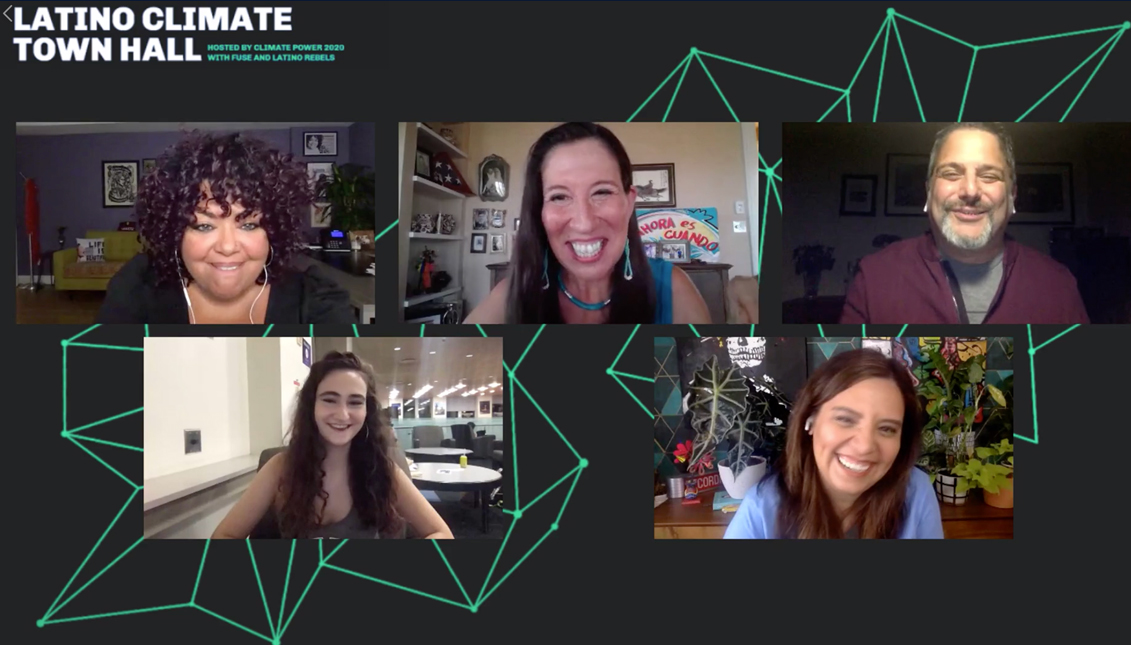
How the global climate crisis is motivating Latinos to demand action
Latinx activists and leaders recently gathered to discuss how the climate crisis is actively affecting their lives.
Anxiety, health, economic hardship — all this can be traced to our changing climate, and it is mobilizing the Latinx community to make this crisis a priority.
The town hall, hosted by Climate Power 2020, Latino Rebels, and Fuse, featured Julio Ricardo Varela, founder of Latino Rebels, and Cristela Alonzo, a comedian, actress, and producer, as moderators and Jamie Margolin, co-founder of Zero Hour, Elizabeth Yeampierre, Executive Director of UPROSE, and Teresa Leger Fernandez, the Democratic Nominee for New Mexico's Third Congressional District, as panelists.
“Today people felt ash coming down, they thought it was actually snow,” said Yeampierre, beginning with the fires blazing in California.
She’s based in New York.
“We know that not only is California burning, we had Hurricane Andrew that impacted Houston and Fort Arthur, Hurricane Maria, superstorm Sandy in New York. Two weeks ago I was on an Amtrak train and a tornado touched down and took out the engine from the train,” Yeampierre continued.
The way she puts it, the emphasis is clear. These events span years, but still, the frequency is not normal.
“We’re living in a place where the current extreme weather events are happening, and they're impacting the front lines, the people least responsible for creating climate change are the ones that are most impacted,” said Yeampierre. “So we are in a state of crisis and it is a climate justice concern for our frontline communities, and it’s serious. It’s happening as we speak.”
There is a danger of normalizing these events, said Margolin. In terms of responding to the climate crisis, getting accustomed to unprecedented natural disasters is the most dangerous thing we can do as a society. Some of us have the benefit of living and dying before situations get dire, but in other parts of the word, the effects have already arrived.
CONTENIDO RELACIONADO
“They’re all interconnected,” said Fernandez. “We hear over and over again how people of color are disproportionately affected by covid, well that's because of the environments in which they live.”
An intersectional response to the crisis at hand is also essential for understanding how climate change contributes to rising cases of anxiety.
“I had been seeing the orange skies in California, forests burning and I get so discouraged, it gives me climate anxiety,” said Margolin.
President Trump’s climate denial and anti-environmental policies are yet another reason for anxieties to intensify.
But his policies also pose a vulnerability for him with Latinx voters, and a potential edge for Biden. Younger Latinx voters are especially motivated by climate change action.
Latinos as a whole are much more convinced climate change is a real crisis, and is exacerbated by humans. To add to that, a recent Climate Power 2020 poll found Latinos are more likely to vote for someone who has a plan to address the issue. The poll found a staggering 77% of Latino voters support a message of action to respond to the climate.
It’s clear where the president’s stance is. Biden’s position with young Latino voters is shaky, and they have a power to make or break the presidential election. A stronger message on the climate from Biden has the capacity to further tip the scale.










DEJE UN COMENTARIO: